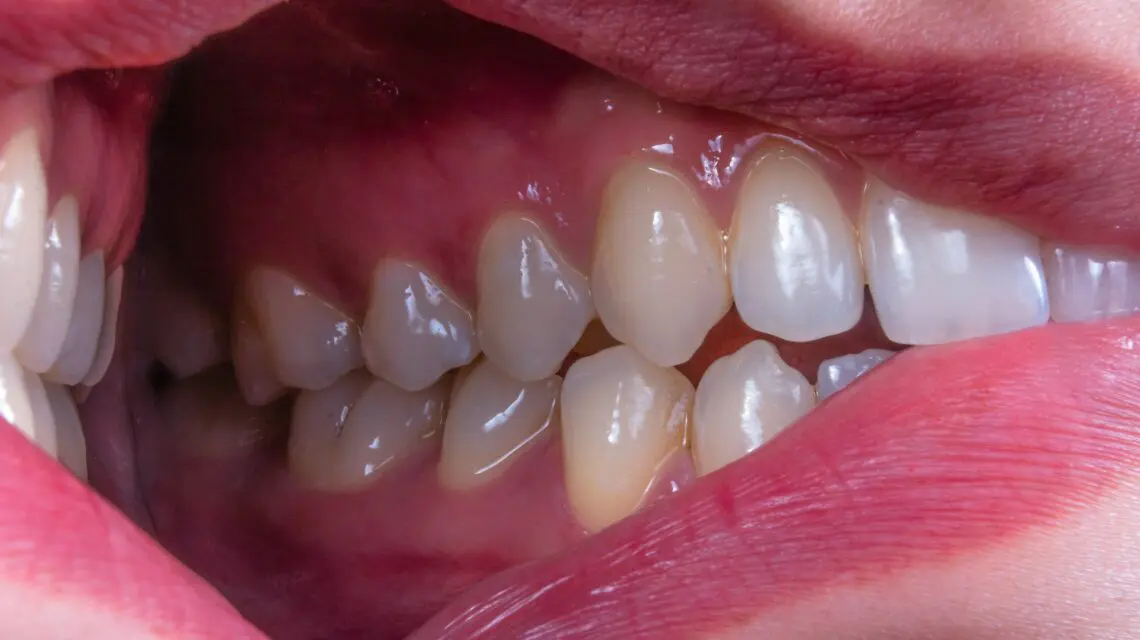Do your gums hurt? Do they bleed when you floss your teeth? Do your teeth ever feel sensitive or slightly loose? These are all symptoms of gum disease, and you need to take them seriously. Knowing what the early stages of gum disease look like can help you get treatment before the condition becomes irreversible.
Gum disease is the number one cause of tooth loss, so its symptoms should never be ignored. Do not wait for the problem to solve itself, because it won’t. Gum disease is a progressive condition—although the early stages can be reversed, the later stages require dental intervention and lifelong care to ensure that your mouth stays healthy.
What Causes Gum Disease?
When the tissues around your teeth become inflamed and infected, it is called periodontal (gum) disease. Gum disease is a chronic infection that gets worse over time. However, the early symptoms of gum disease often get ignored, especially if you skip your dental exams. Your dentist can spot the signs and give you treatment before it becomes any worse. If left untreated, periodontal disease can cause bone loss and damage to your jaw, leading to tooth loss.
Gum disease symptoms include:
- Bleeding gums
- Soreness or pain when chewing or touching your gums
- Gums pulling away from your teeth
- An unpleasant taste in your mouth
- Persistent bad breath
Who Can Get Gum Disease?
Anyone can get this very common disease. Nearly half of all adults in the United States suffer from periodontal disease. While some people are more prone to gum disease, the most common cause is poor oral health. When dental plaque and tartar are allowed to build up, they harbor harmful bacteria that cause infections and release acids that irritate your gums. That’s why good brushing and flossing habits are so important—they remove the bacteria that cause gum disease.
Risk factors for gum disease include:
- Poor oral health
- Genetics
- Diabetes
- Autoimmune diseases
- Hormonal changes (puberty, pregnancy, menopause, stress)
- Heart Disease
- Smoking/Vaping
The Four Stages of Gum Disease
1: Gingivitis
The first stage of gum disease may not come with any pain. Your gums will look red and puffy, or they might bleed when brushing or flossing. At this point, gum disease is reversible with a proper oral health routine, as there is no permanent damage to the gum tissues or any bone loss.
2: Mild Perodontistis
At this second stage, your gums are starting to recede and pull away from your teeth. This creates a little pocket where plaque and bacteria can hide. Your toothbrush and floss cannot reach into these little pockets, so the bacteria living there are beginning to affect your bones, ligaments, soft tissues, and the roots of your teeth.
3: Moderate Periodontitis
Unless gum disease is treated during the first two stages, it will quickly progress into the third stage. At this stage, pain may begin to become more apparent. Bad breath is also very common. “Wiggly” or shifting teeth are also common at this stage, as the infection begins to break down the ligaments, soft tissues, and bone tissues that hold your teeth in place.
4: Advanced Periodontitis
As the loss of bone, gum, and ligament tissues continues, your teeth will start falling out. Along with the loss of teeth, you will also notice increased infections and significant pain. Depending on the degree of damage, your dentist might recommend a number of things. You may need antibiotics to fight the infection, surgery to replace lost tissues and bone, as well as tooth replacement options if you are missing any teeth.
Preventive Dental Care in Flagstaff
Gingivitis, periodontitis, gum disease, or periodontal disease—no matter what you call it, proper dental care can prevent it. Dental checkups every six months and a strong oral health routine can help keep your mouth safe from harmful bacteria and keep this disease away, or at least keep it manageable.
If you have concerns about gum disease and the effects it could have on your dental health, we’d be happy to advise you. At Country Club Dental our dentists, Dr. Whitney is here to help give you a pain-free smile and to answer any questions you have along the way. With exceptional education and experience, our entire team will help you on your journey to better dental health. Contact us today to make an appointment.
Images used under creative commons license – commercial use (2/5/24). Photo by Ozkan Guner on Unsplash.


